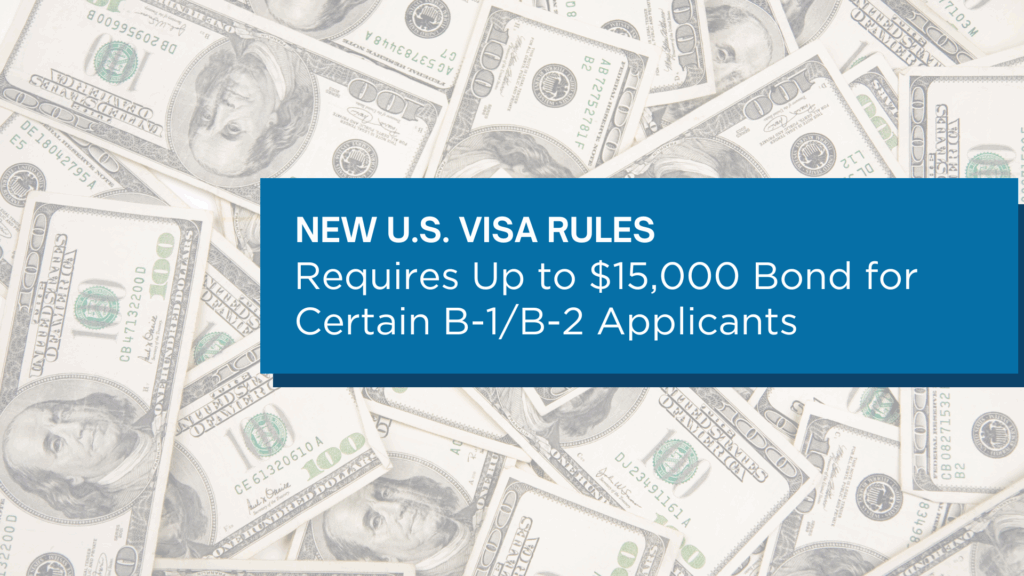
August 2025 Update: Visa Bond Pilot Program Now in Effect
The U.S. Department of State has officially launched a 12-month Visa Bond Pilot Program, effective August 20, 2025, introducing a new financial requirement for select B-1 (business) and B-2 (tourism) visa applicants. This move signals a more stringent stance by the U.S. government to address ongoing visa overstay issues and concerns around national security, particularly related to weak identity vetting and economic citizenship schemes.
Under the rule, consular officers will have the authority to require applicants from designated countries to post a visa bond of $5,000, $10,000, or $15,000 before a visa can be issued.
Who Is Impacted by the Visa Bond Requirement?
The policy specifically targets nationals from countries that:
- Have historically high rates of visa overstays;
- Are determined by the U.S. to have insufficient identity screening protocols;
- Offer Citizenship by Investment (CBI) programs without adequate residency or background checks.
Initial Countries Affected:
As of August 5, 2025, the Department of State has named Malawi and Zambia as the first countries impacted by this rule. However, more countries may be added based on overstay data and diplomatic review.
Visa Bond Details at a Glance
- Visa Types: Applies only to B-1 (Business Visitors) and B-2 (Tourists).
- Bond Amounts: $5,000, $10,000, or $15,000—determined by the consular officer based on risk assessment.
- How to Pay: Bonds must be posted electronically through Pay.gov.
- Visa Validity: Single-entry visa, valid for 3 months, with a 30-day stay upon U.S. entry.
- Refund Conditions: Full bond refunded upon timely departure and full compliance with visa terms.
- Consequences for Non-Compliance:
- Forfeiture of the bond
- Possible future visa ineligibility
- Immigration enforcement or removal proceedings
Why Is the U.S. Introducing a Visa Bond Program?
This policy is part of a broader initiative under Executive Order 14159, aimed at strengthening U.S. immigration enforcement mechanisms and encouraging foreign governments to enhance:
- Identity verification and document security;
- Transparency in visa issuance processes;
- Accountability for visa overstay rates.
Visa overstays remain a serious concern, with hundreds of thousands of individuals overstaying nonimmigrant visas each year. The bond system is designed to act as both a deterrent and enforcement tool, pushing applicants and their governments to improve compliance.
Implications for Travelers and U.S. Sponsors
If you’re a U.S. employer, tourist host, or family member planning to sponsor a visitor from an affected country, this program introduces:
- Delays in visa processing and travel timelines
- Increased financial risk and logistical complexity
- The need for legal support to ensure compliance with bond posting and visa conditions
Failure to meet the bond requirement—even after visa approval—can result in a denial. Additionally, applicants must enter and exit the U.S. through pre-selected airports equipped to handle compliance tracking.
VKM Law Group’s Take: Legal Guidance Is More Crucial Than Ever
At VKM Law Group, we recognize that shifting immigration rules create anxiety for travelers and sponsors alike. This visa bond program introduces unprecedented hurdles for certain applicants—and raises critical legal questions about fairness, transparency, and due process.
Whether you’re sponsoring a visitor, applying from an impacted country, or seeking to understand your rights, consulting with an experienced immigration attorney in New Jersey is the best first step to navigating this evolving landscape.